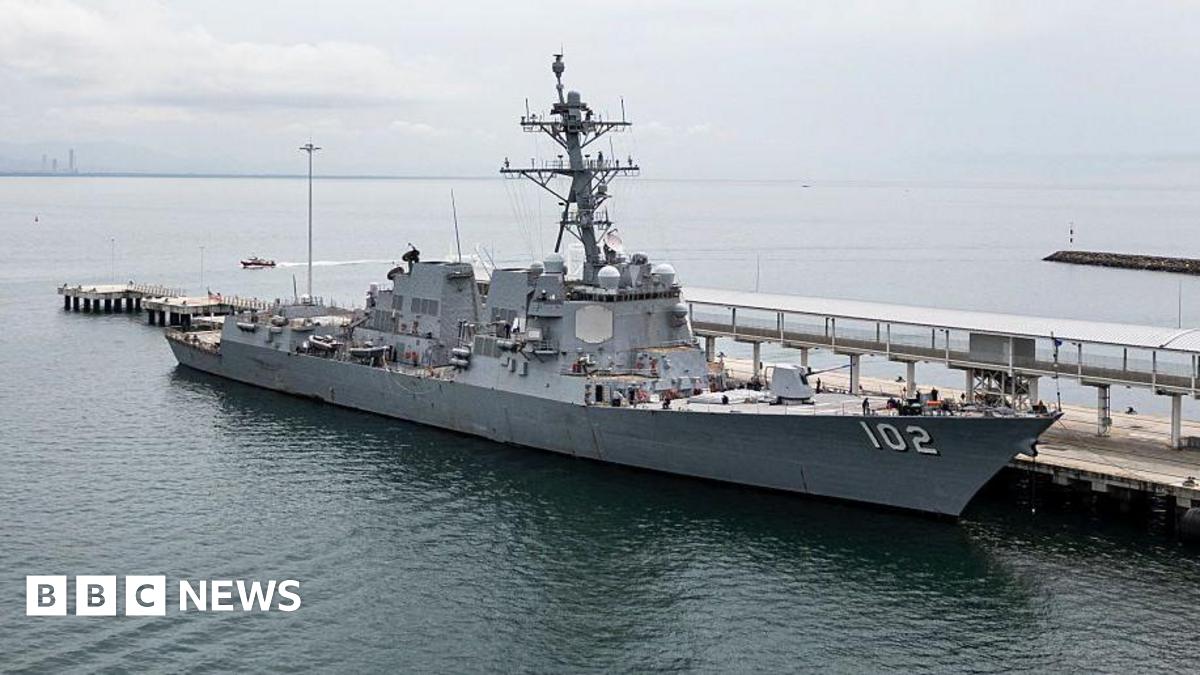US officials have presented the strike as an effort to halt the flow of drugs to the US – which has been a key mission of Trump’s second term.
But it was an unusual operation, according to Rebecca Bill Chavez, head of the Inter-American Dialogue think tank in Washington.
“If this [the US movements] is a counter-narcotics deployment, this is unlike any counter-narcotics deployment I’ve ever seen,” Ms Chavez, a former US undersecretary of state for the Western Hemisphere, told the BBC.
US maritime anti-drug operations are usually led by the Coast Guard, working with regional partners to intercept suspicious vessels.
It is unclear whether the US was in contact with other Caribbean officials about Tuesday’s strike beforehand.
“The risk of escalation at sea is real,” Ms Chavez said.
The president himself told reporters in the Oval Office that “you see the bags of drugs all over the boat”, referring to video footage which he said showed the strike.
Venezuela is often used as a stop off for transporting cocaine – but the drug is mostly transported to the US via the Pacific Ocean rather than the Caribbean, according to a 2023 UN report.
Officials have so far not explained how they determined those on board the boat targeted on Tuesday were members of Tren de Aragua, or what kind of drugs they believe the vessel was transporting.
The military strike marked the strongest action the Trump administration has taken against drug trafficking – and is something that legal experts say may have violated international human rights and maritime law.
Secretary of State Marco Rubio defended the operation, and indicated the US could take similar action again in the future.
“What will stop them is when you blow [drug traffickers] up,” he said during a visit to Mexico, lamenting that previous US efforts to stem the trade had not been effective.
